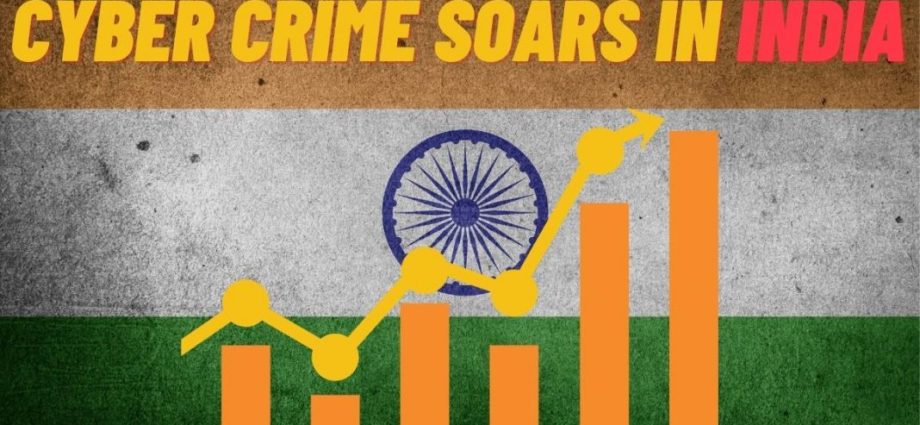By John Singarayar
Tala, Nov 6, 2024: India’s remarkable digital transformation has brought a parallel rise in cybercrime, posing significant challenges to the country’s progress.
As people increasingly depend on online platforms for everyday activities, cybercriminals are exploiting these behaviors, making it urgent for India to address vulnerabilities in its digital infrastructure.
Recent data from the National Cybercrime Reporting Portal (NCRP) paints a sobering picture. In just the first quarter of 2024, Indians suffered massive financial losses across different types of cybercrimes, including 1.2 billion rupees from digital arrest scams,14.2 billion rupees from trading scams, 25.8 million rupees from investment scams, and 132.3 million rupees from romance scams.
These figures reflect a pressing need for both government and individual action to address the issue, as cybercrimes not only cost money but also erode public trust in digital systems.
One type of scam that has drawn widespread attention is the “digital arrest scam,” in which scammers pose as law enforcement officers and threaten victims with false arrest unless they make immediate payments. These fear-based tactics often succeed in convincing even well-educated individuals, leaving them feeling deceived and fearful, and undermining their trust in real authorities and digital interactions.
Trading scams, meanwhile, have proven to be among the most financially damaging, costing Indians 142 million rupees in the first few months of this year. Fraudsters set up websites or applications that mimic real trading platforms, luring investors with simulated profits, only to disappear with their money when the scam collapses. Such losses can cripple families and deter new users from trusting legitimate trading platforms, creating a barrier to financial literacy and investment.
Romance scams, though typically smaller in financial impact, carry a heavy emotional toll, as criminals exploit victims’ compassion and emotional investment. Although financial losses from these scams were lower, the personal devastation can be profound, as victims often feel betrayed and humiliated.
Addressing cybercrime effectively will require a significant investment in India’s cybersecurity infrastructure. Cybercrime units need greater funding, advanced technology, and a larger, better-trained workforce to manage the increasing number of cases. Public education and digital literacy are also essential, as many Indians lack basic knowledge about how to stay safe online, making them easy targets for scams.
Banks and other financial institutions must also play a crucial role, implementing advanced fraud detection systems, secure payment gateways, and two-factor authentication to reduce the chances of customer data being exposed to criminals. These organizations can also provide customers with tools and resources for staying safe online.
Ultimately, combating cybercrime will require a multifaceted approach that combines legal reform, technological innovation, international collaboration, and continuous public education. Only with a comprehensive and proactive strategy can India keep pace with cybercriminals, offering its citizens a secure digital environment and fostering trust in its digital ecosystem.
(The writer is a cultural anthropologist and works at Janseva, Community and Human Resources Development Centre, Tala. Maharashtra)









